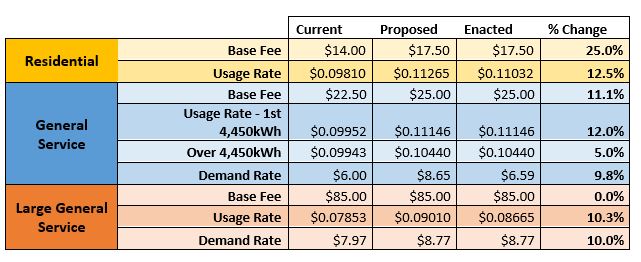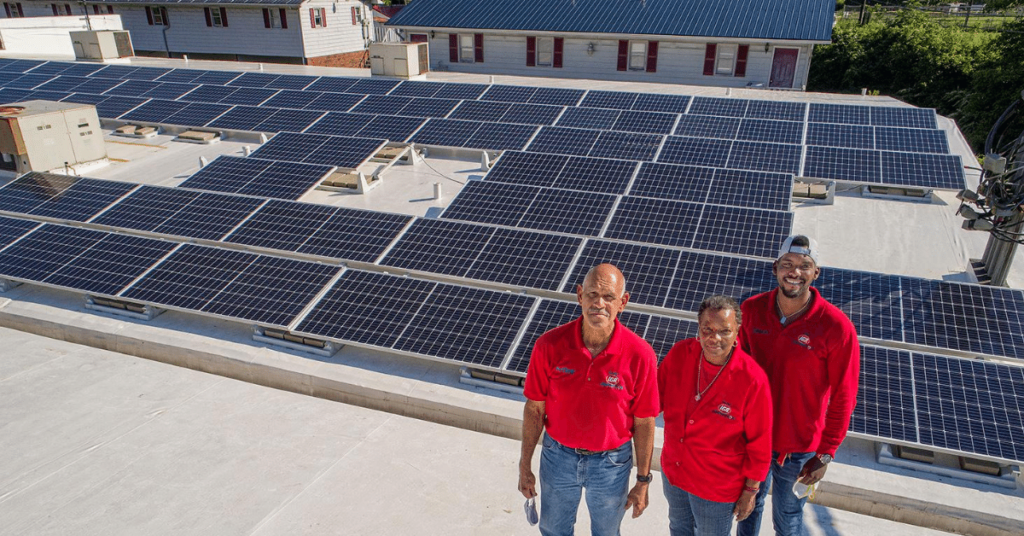Last fall, in the middle of a pandemic that has caused many Eastern Kentuckians to face even more dire financial situations, Kentucky Power quietly filed a new rate proposal case in Frankfort that proposed higher electric rates for 100,000 customers in 20 counties and significant changes to solar net metering rates.
Their proposal called for as much as a 25 percent hike in rates – their third hike in five years— and also included disincentives for much-needed energy efficiency upgrades that would save home and business owners money.

That’s why the Mountain Association, Kentuckians For The Commonwealth (KFTC) and the Kentucky Solar Energy Society, represented by Tom FitzGerald with the Kentucky Resources Council, jointly intervened in the case through formal proceedings. We filed to intervene in this case before the Kentucky Public Service Commission (PSC) so we could advocate for reasonable rates and fair solar net metering policies.
Every year the PSC receives around 500 applications from utility companies for changes to rates and services. Nearly 85 percent of these cases go completely unchallenged. Our status as an intervenor allowed us to contribute to the rate-making scrutiny process with testimony, discovery and cross-examination.
Alongside our partners, we worked to raise awareness of the case. More than 250 public comments were filed and we worked to encourage virtual opportunities for public hearings so that customers could safely comment during COVID-19.
In January, the PSC announced their decision, as summarized by our partners at KFTC, to:
- Approve the company’s request to increase the monthly fixed charge that all residential customers pay, regardless of how much energy they use
- KFTC members and allies had opposed this proposal, arguing that bill increases should be reflected in the per-kilowatt-hour energy charge, not the flat base fee. A higher base fee means the utility makes money no matter how little energy customers use, which discourages people from investing in efficiency and makes it harder for customers to manage their bills by conserving energy.
- Reduce the total increase sought by Kentucky Power by nearly 26 percent, from $70 million to $52 million
- Deny the company’s plan to spend tens of millions of dollars on new, advanced meters and their proposal to recover those costs, sparing customers from additional charges to pay for those upgrades
- Reject Kentucky Power’s plan to charge lower rates to their highest energy users.
- KFTC and allies pointed out that this approach, called a “declining block rate,” discourages investments in energy efficiency and punishes households who attempt to manage their energy bills by conserving energy. The Mountain Association believes there are far better ways to help folks with high winter bills, including pay-as-you-save efficiency programs that will lower bills and improve peoples’ homes at the same time.
- Defer – for now – the utility’s claim that rooftop solar customers should get only a very low credit on their bills for the energy their renewable energy systems provide to the grid
- If the PSC had accepted Kentucky Power’s proposal for crediting solar net-metering customers, it could have set a precedent for all other utilities in Kentucky. Instead, the Commission said it will rely on the advice of a consultant and require more data before determining a fair value for solar net-metering customers.

While the PSC deferred their decision on net metering until May 14, 2021, Kentucky Power has gone ahead and implemented its new solar net metering rate. When the PSC makes their decision in mid-May, Kentucky Power may have to issue refunds to any customer who is on the new rate to match the rate the PSC decides on.
We have now begun working on another intervention in a similar rate case filed by Kentucky’s two largest utilities, Louisville Gas and Electric and Kentucky Utilities. This case includes significant changes to their net metering policies for their solar customers.
If you are a KU customer interested in solar, please contact Carrie Ray at carrie@mtassociation.org for information on what you need to do now to be grandfathered in at the current rate.





